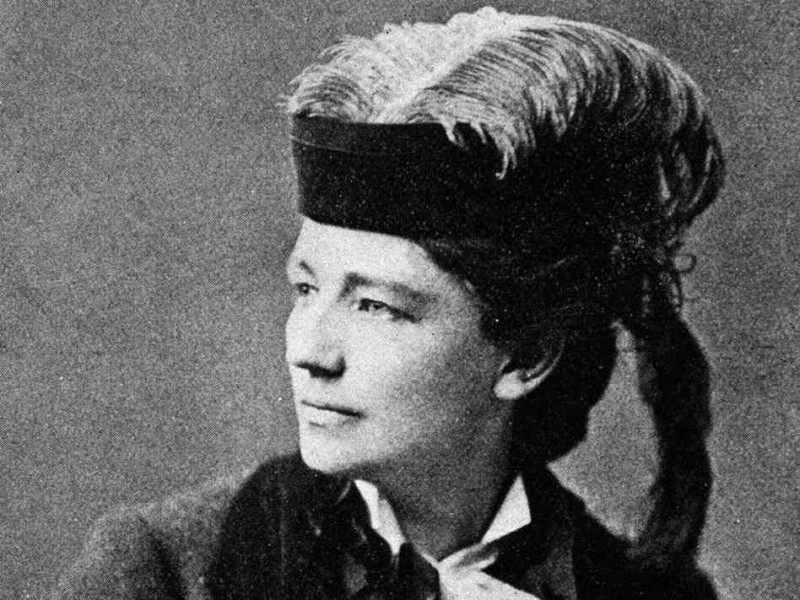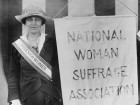Spiritualist. Stockbroker. Free love advocate. Presidential candidate. “Terrible Siren.” That’s the short version for the resume of Victoria Woodhull, this month’s Avenger. Born in 1838, her mother was a fortune teller, her father a snake oil salesman. She was forced her into an unhappy marriage when she was only 15 to a ne’er-do-well and had two children, one of whom was profoundly disabled. Given this backdrop, her many accomplishments seem all the more remarkable. Among the many “firsts” attributed to her, she was the first woman to address the US Congress, proposing that women’s right to vote was already guaranteed by the 14th and 15th amendments. While this argument was not original to her, it established her as a leader in the women’s suffrage movement. Though she certainly had her detractors even among suffragists, she became the candidate of the Equal Rights party in 1872, making her the first woman to run for president in US history.
At a time when divorce was taboo, Victoria was an advocate of “free love”, which at the time, simply meant the right of individuals to marry and divorce at will. Along with her sister Tennessee Claflin, she ran the newspaper The Woodhull & Claflin Weekly, which they used as a platform for disseminating their ideas on gender equality, free love, and labor reform. The sisters are also credited with publishing the first English language translation of Karl Marx’ Communist Manifesto. The newspaper served as her chief weapon against her nemesis,the prominent Reverend Henry Ward Beecher, whom she outed as a hypocrite and adulterer. As a result, she spent the 1872 election day behind bars for the crime of spreading “obscenity” through the mail under the Comstock law.
Victoria’s life has provided fodder for many an historical debate. Like many of her American proto-feminist counterparts in the 19th and early 20th centuries, Victoria’s politics were complicated. She was a proponent of eugenics; whether she was anti-abortion is controversial. Woodhull’s story has again come to light in recent months, with some drawing comparisons to Hillary Clinton’s campaign (I can’t help but fantasize a little about a debate between Victoria and Donald Trump). While I wouldn’t exactly describe her as a “feminist heroine”, she was radical thinker who spoke to power without apology. Her story is as provocative as it is inspirational.
Resources
Lady Eugenist: Feminist Eugenics in the Speeches and Writings of Victoria Woodhull. Victoria Woodhull (Compilation of Essays with Introduction by Michael Perry), 2005.
Victoria Claflin Woodhull. National Women’s History Museum. www.nwhm.org
Victoria Woodhull. Harvard University Library Open Collections Program, Women Working 1830-1900. ocp.hul.harvard.edu
Legal Contender: Victoria C. Woodhull, first woman to run for US President. feministgeek.com
Move Over, Hillary! Victoria Woodhull Was the First Woman to Run for U.S. President. April 13, 2015, vogue.com
The Strange Tale of the First Woman to Run for President, April 9, 2015. politico.com


